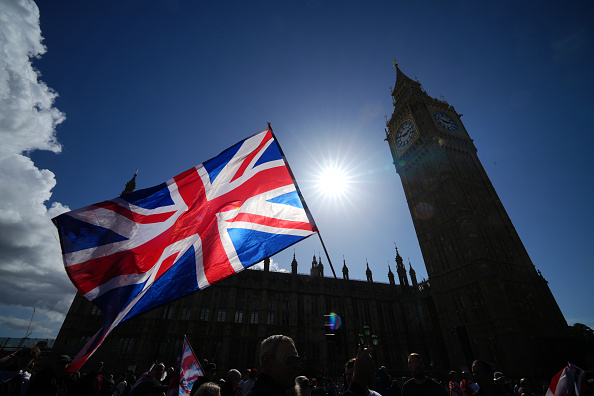A new report reveals a disturbing surge in attacks targeting mosques, alongside the increasing use of religious and national symbols to intimidate British Muslims.
The report, “A Summer of Division,” was released by The British Muslim Trust (BMT), recently appointed by the Ministry of Housing, Communities & Local Government to track and address Islamophobic hate crimes in the UK.
Since BMT’s appointment in July, it has tracked at least 27 verified attacks targeting mosques in the three months to October.
Over 40% of incidents included the use of British or English flags or Christian symbols or slogans to intimidate; 11% included other forms of graffiti or hate signage.
The report says there has been a “step change” in the targeting of mosques — they registered one verified incident in July, but that spiked to seven in August and then nine incidents for both September and October.
“The evidence from this summer is incontrovertible: anti-Muslim hate in Britain is rising in both visibility and severity – and Mosques are being targeted on a staggering scale,” said BMT CEO Akeela Ahmed
“The current crisis is intolerable and concerted sustained action is urgently needed.
“Britain’s 4 million Muslims deserve to feel every bit as protected and as much a part of this country as everyone else. This report must be a wake-up call — something has changed for the worse, and as a country we need to put it right.”.
Key findings
- 41% (11 incidents) involved crosses, Union Jacks, St. George’s flags, or the use of Christian slogans and symbols to intimidate.
- 26% (7 incidents) were violent or destructive, including smashed windows, assaults, and one arson attack in Peacehaven, East Sussex.
- 15% (4 incidents) involved graffiti or hate signage
- 11% (3 incidents) featured verbal or online abuse
- 7% (2 incidents) had other symbolic abuse or object-based intimidation
Out of the 27 attacks, more than one in four were violent or destructive.
Incidents evolved from single acts of vandalism to coordinated symbolic intimidation and violent attacks, culminating in arson with serious risk to life, and repeat targeting — signalling a sustained increase in both scale and intent.
The report looked at this summer’s Raise the Colours campaign , which
encouraged widespread public display of the Union Flag and St George’s Cross.
“While many participants saw it as patriotic, BMT’s verified cases show a parallel rise in mosque vandalism using those same symbols, in some cases accompanied by Christian slogans,” said the report, adding that Tommy Robinson’s far-right “Unite the Kingdom” rally in September correlated with an uptick in attacks on mosques.
“While the data cannot establish direct causation, the temporal correlation between these public mobilisations and the spike in mosque-targeted incidents is striking. It suggests that mainstream visibility of nationalist campaigns helped normalise or embolden anti-Muslim behaviour in local contexts,” it added.
The BMT called for swift, coordinated action to protect Muslim communities, calling for faster support from local authorities. It said there should be simpler funding for mosque security, better information sharing, and stronger collaboration across government and civil society. It also emphasised expanding education and community cohesion programmes to build trust and unity.
















